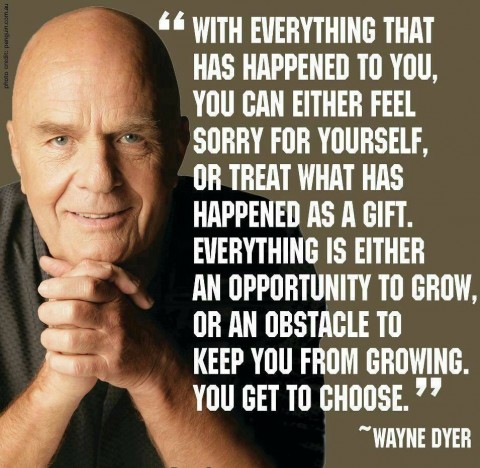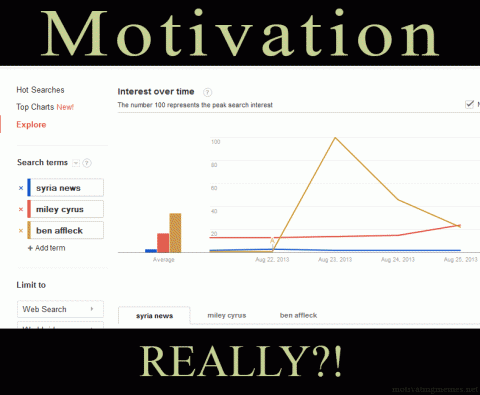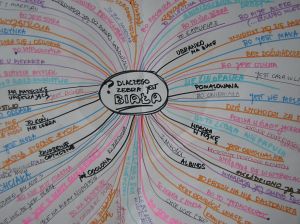 By Tao De Haas
By Tao De Haas
Motivation comes from the word ‘move’ and means ‘to move’. Motivation literally means; that which moves a person to a course of action. Motivation indicates a movement that is initiated by a reason or purpose. This is an important point to understand; having a reason and purpose will activate motivation. For example, it is hard to move towards something if you can’t see any reason or purpose. In other words you need a motif or good reason as to why you would put in the effort and to create some momentum and move from where you currently are. If you are keen to do something you are more likely to be motivated; you don’t have to try, you will just want do it. Remember also that you might have a reason and purpose to NOT be motivated; in that case you won’t to ‘move’.
Move away or towards?
At the core we humans are very simple creatures. We either move away from something or towards something courtesy of the brain. The brain is designed to move towards reward or pleasure and move away from pain. Like any other living creature we move away from pain and towards pleasure (survival). In order to be motivated (to move) you need to have a good reason; either a reward or benefit, or a move away from discomfort, dislike or danger.
To be or not to be motivated…that is the question
There are many questions about personal motivation – or lack of it – as well as motivation in others. People often wonder why they themselves or someone else is not motivated.
Managers often ask the question ‘How can I motivate my team?’ The problem is they look for a simple solution like a team building day, expecting it to work like magic. They think that somehow by waving a magic wand they will become motivated. Even if you get the world’s most respected motivational speaker, it’s unlikely to achieve anything more than a short term high. It generally does not result in the team being more motivated to work together. Why…because if there is not a clear reason, a motif for the individuals in that team, nothing much will move them. The same goes for personal motivation. Many people go searching for the magic motivation formula instead of just being clear about their purpose or reason.
WIIFM (What’s In It For Me?)
We generally are only motivated if the most fundamental questions are addressed: What is the point? Why should I be doing this? What’s in it for me? Why is this relevant to me?
In order to be motivated there needs to be something in it for you. Even if you are motivated to help others, it makes you feel good; it gives you satisfaction, a purpose. You need to create and have a good reason to put in continuous effort. Why else would you put in the effort and generally give up doing something else that you might otherwise enjoy?
Did you ever wonder why you had to do certain subjects at school that did not particularly interest you? The answer probably was ‘because it is part of the curriculum’. Did this motivate and inspire you to do well? While you probably complied – as not doing so probably had negative consequences – you certainly did not undertake the task feeling motivated, eager and excited.
But I am trying
How well does it work when you feel you ‘should’ give up smoking, ‘should’ lose weight, ‘should’ drink less or ‘should’ exercise more, when you don’t really want to? Have you ever met someone who has been trying to give up smoking? Answer one question: Do they or don’t they smoke? The problem is with the implication of the word trying.
The word trying says you are not really motivated or committed but you are attempting something, having a go. Only when you see a compelling reason and decide to do something will you be motivated enough to change your habits and achieve what it is you want to achieve. Without a decision and a compelling reason you can try as hard as you like, but you are unlikely to succeed. No amount of teambuilding, motivational speakers or programs can do this for you. No rewards will help you to become motivated beyond compliance if you don’t personally see a motif or a good reason why.
The more motifs, the more motivation
As a general rule, the more reasons you have to do something – the more benefits there are for you – the more motivated you are likely to be. No matter how many reasons other people might give you or how much they try to persuade or influence you, until it resonates with what is important to you, in other words with what you value, you just cannot and will not be motivated.
You can take a horse to water, but you can’t make it drink. Ultimately no-one else can motivate you other than you. The more your activities and goals are aligned with what you value, the more motivated you will be. You are unlikely to be motivated by what you ‘should’ do rather then what you would love to do. Of course we are also motivated by what I call ‘secondary motivation.’
Secondary motivation is being motivated to do something because if you don’t it will have negative consequences.
If you don’t lose weight and look after your body you might get sick, if you don’t do your tax return, pay your mortgage, earn money etc. there will be costs, discomfort…in other words pain.
The more compelling reasons you can find to do something, the more motivated you will be and the easier things will become. If there is a lack of motivation it is because there is no clear primary or secondary benefit. When you are not motivated in areas of your life that are important to you, examine the ‘pay off’, the reason or benefit of staying stuck. By the way, you can’t make the horse drink but you can make it very thirsty!
Am I being lazy?
Many people confuse lack of motivation with being lazy. Ultimately there is no such thing as being lazy. But there certainly can be an absence of motivation due to a lack of motive.
If you want test this theory ask a teenager to tidy up their room and see their response. You might have (wrongly) judged the absence of enthusiasm as being lazy. Now ask the teenager to leave the room. Hide money in their room in different places and invite them to find as much as they can within two minutes. What do you think might happen to the ‘lazy’ teenager? You got it…MOTIVATION!
Get up, get out and make it happen….or not
Motivation is what will make things happen. It is what helps you get out of that chair, stop putting toxins into your body and move towards what you really want in life. So from now on don’t waste your time by calling yourself lazy or making half hearted attempts by ‘trying’. Instead spend time uncovering your motivation. You will find that there are certain things that motivate you and other things that don’t. No one can tell you what should or should not motivate you. Different people are motivated by different things.
If you feel motivated to keep overeating, smoking, drinking etc. that’s okay. You know the consequences and if you chose to accept them, then that is entirely your choice. So make it! The important thing is don’t kid yourself. The fact is you are motivated and committed to these things otherwise you would not be doing it. So if you want to overeat, smoke, drink, stay sitting in your chair watching lots of TV, then don’t waste your time trying to give up or by making excuses. Stop boring yourself and others with the word ‘should’ or ‘I should give up’. Either give up or don’t! The choice is yours. But before you decide ask yourself these questions:
- Is this really what I want to do?
- Why am I doing what I am doing? What is my real motif, reason or purpose? Am I sure?
- How does this serve me now and in the future?
- Does what I do really align with my values or is it merely a lack of impulse control?
The motivation myth
We now know that motivation is the key to getting things done; for achieving goals and desires. We also know that aligning our motif with our values is important.
People often say: ‘I know it is important to me but I am just not that motivated’. These people rarely start or change anything because they are waiting to be motivated first. They somehow think that the only way they can move towards something (or away from something) is to be motivated. Wrong! They somehow expect that motivation will appear out of thin air and this will magically hurdle them into action towards their goal. Don’t sit around waiting for motivation to magically appear…it doesn’t and it won’t! The motivation bus will never arrive no matter how long you wait for it.
What follows is a most important statement.
DON’T wait to feel, or to get, motivated
If what you want to achieve is important to you and you don’t feel motivated, just do it anyway without feeling motivated! Make the decision to do it. Yes this might take an act of will, discipline and determination. Yes it might be unpleasant, require a commitment and you might even have to give up something else. Yet you do it because you know the end result, your goal and that is more important than whether you feel motivated or not. The problem is that most people focus on what they have to give up rather than focussing on the long term gain.
Do you really think elite swimmers look forward to getting up every morning at 4:30am day after day? Rather than begrudging their early morning starts, they are completely focused on the end result; their goal. That is what keeps them going, that is what motivates them.
What is important to you?
When you want to achieve something that is important to you, just start the ball rolling. Start pushing that motivation ball until it creates its own momentum…and it will, and then it might even be hard to stop. As the famous Nike motto says ‘Just Do It!’ Or as the famous quote attributed to Johann Wolfgang von Goethe says: ‘Whatever you can do or dream you can, begin it. Boldness has genius, power and magic in it’.
Just like starting to exercise again after you haven’t for a while or perhaps never. It is highly unlikely that you will jump out of bed one morning full of motivation and start exercising. You might not feel like it, but because you know it is important, you will feel better and healthier in the long term, you get going even though you don’t want to. At first it is a real effort and you might have to fight that little voice in your head that will offer you all kinds of good reasons and temptations not to do it.
Here is an important fact. The more you do it, the more motivated you will become! The more the ball gets pushed, the more the ball will create its own momentum. It’s just like pushing a rock up hill. When you push a rock up on one side of a hill, it gets harder and harder the closer you get to the top.
** Important note: Most people give up just before the critical moment of breakthrough. But when you push that rock over the edge it creates its own momentum and it will roll down faster and faster as it builds up more momentum.
So remember. You won’t always be motivated to do the things that are important to you. Don’t wait for motivation to come along. Make a decision to do it anyway and start creating momentum. Soon you will find that the momentum will continue all on its own and it might even pull you along with it.
Why is it so difficult to maintain the momentum?
Now you might say ‘But I have tried to do things differently may times but I have not succeeded’. There is a really good reason for this and guess what it’s not your fault. It all has to do with your brain. There are three major reasons.
The latest research in neuroscience tells us that when you want to make changes in your life the brain will not necessarily be on your side and might actually hinder you in achieving what you want. Let’s explore this further:
1. Don’t take it personally
Many people resist change. Even when people’s lives are threatened, through smoking, excessive alcohol consumption, poor eating habits etc., changing the habit often seems near impossible. Have you ever wondered why so few weight loss programs work? Here is the answer. It all has to do with habits and conditioning.
Neuroscience has found that the part of the brain that deals with habits and what is familiar requires little energy. When something is a habit or routine it does not require much attention and you do things automatically. Because of this no matter how damaging it is to you, your behavior or habit is familiar and therefore feels normal and ‘comfortable’. You don’t have to think about lighting up that cigarette or putting junk food in your mouth, it just comes naturally to you.
This automatic response frees up the more conscious or thinking part of the brain to deal with more complex tasks such as processing new information. This part of the brain, the prefrontal cortex or the executive part of the brain, is not as energy efficient and requires more energy.
Just think about driving your car. You no longer have to consciously think about driving it, do you? Most of it is automatic until you are confronted with an unusual situation. Now imagine driving your car in another country where they drive on the other side of the road. Do you think your driving would be less automatic? Probably yes. You now have to consciously think about what you are doing and you feel uncomfortable and less confident. Until you get use to it, you would rather go back to driving on the other side of the road because that is what you are used to.
Before you get use to this new way of driving it feels strange and even wrong to you and you might even wonder why these people drive on ‘the wrong’ side of the road. Something might appear wrong because it is not what you are used to. It requires more focus, energy and effort from you. Given half a chance you would probably like to revert back to what is comfortable and familiar. It takes the brain some time to get use to a new situation…but before it does something else happens. It’s essential that you know this if you want to make important and lasting changes in your life.
2. The brain resists change
Your brain actually resists the change; not because it is trying to make things hard for you, but it does so for a very good reason. Your brain’s basic function is to keep you safe. Its main interest is your survival.
In order to keep you safe your brain is designed to be alert and detect if there is something different in your environment; something unusual or unfamiliar. If there is something out of the ordinary it could mean there is a threat to you. The limbic part of the brain – where our emotions and fight/flight system (the amygdala) resides, has a very fast, effective and efficient reference library. It will constantly and instantly compare all incoming information to see if it matches. Of course you are not consciously aware of this as it runs ‘in the background’. The limbic part of the brain will determine if what is happening is different from your experience, expectations and assumptions. When it detects a mismatch – just like an error code – it will activate the alarm center (the amygdale) in the brain. Your brain will send a powerful and urgent message that there is something amiss.
When the alarm is sounded the fear circuitry, the primitive part of your brain, gets triggered and you become unsettled or worse, you become stressed and anxious. This is what is supposed to happen as without this you would not survive.
When the error message shows up your ‘animal’ instincts take over and the most primitive and instinctual part of your brain gets activated and you become fully alert and ready to fight or run away. When the amygdale, gets activated you tend to become more emotional, act impulsively and it’s difficult to think logically. Your capacity for higher thought (reason) immediately decreases. Rather than you consciously overriding the error message you tend to automatically retreat to what is familiar. Just like any primitive creature you retreat to your familiar habitat, your ‘home’ or default position.
Are you getting the picture? Change leads to an error message; feeling unsafe, wanting to retreat to safety or to what is familiar, which is…you guessed it, whatever you are used to doing; whether it is food, cigarettes, alcohol or any other habit you may have.
So comparing information and alerting us to a mismatch is great for survival but not so good when it comes to making positive changes in our life. As far as the brain is concerned, change is a pain in the…..brain!
3. Focusing on the loss and not the gain
Another reason that change is so difficult is because of the way we drive our brain. There is a technique that racing car drivers use; don’t look were you don’t want to go. In other words look where you do want to go. As I mentioned, most people fail to make changes in their life because they focus on what they are giving up rather than on what they are gaining. For example, they look longingly at that cigarette they have just given up. When the brain perceives a loss it interprets it as giving up part of its security. ‘You want to give up something that is familiar? Not if I have my way! I am here to protect you. You want to give up the familiar neuro pathway and create a different one? No thanks, I’d rather we stick to well trodden and familiar ones’ says the brain.
When you focus on the loss rather than the gain it is hard for the brain to get excited and support you. Giving up something trusted and familiar is not the way to do it. Your brain needs a better and more compelling reason in order to start making changes.
What you need to do to make positive and lasting changes in your life?
Get your brain on board and get it to support you. And here is how you can do it:
- Align what you are moving towards (what you want) as much as possible to what you value (what is important to you). This is a very important motivator.
- Remember if the brain’s error code and therefore its alarm system get activated by making a change, this does not mean the change is wrong or you are in danger.
- Recognize that the brain’s protective mechanism is reactive, impulse based and prone to overreaction.
- Override the rather primitive alarm system with reasoning and logic and understand that it is mostly a false alarm.
- Understand that the data processing system, the limbic part of the brain, is very fast, automatic and very fuel efficient and the logical and reasoning part of the brain, the prefrontal cortex is much slower and very fuel consuming. This part of the brain rather than being automatic needs to be activated deliberately and consciously.
- Accept that it takes the brain time to get use to a new situation.
- Be aware the error code will keep popping up for a while until a new neuro pathway is established and the new behavior becomes a habit.
- Realize that it takes between 30-60 days for a new behavior or habit to become engrained and automatic. Remember also that withdrawal is a necessary part – and positive symptom – of the change process.
- Remember that if you regress during that time you often have to start from the beginning. That is where discipline and determination come in.
- Understand that when under stress you need to be extra vigilant so you don’t regress to old and ineffective behavior or habits. For example people will often revert back to smoking, drinking or over eating during times of stress, hence the saying; during stress we often regress.
- Focus on the gain not the pain. Focus and get excited about reaching your goal, the end result and the solution rather than the loss of what you are giving up. For example, replace ‘I have to give up cigarettes’ with something like: ‘I am looking after my health and everyday my health is improving’.
- Visualize what you want to change or achieve and imagine that you have already achieved your goal. See the end in mind and get excited about how it feels to have already achieved your goal. Studies have found that your brain will already start to create new neuro pathways just by visualizing and feeling excited about what you want.
- Be aware that the unconscious part of the brain does not know the difference between what is real and what is imagined. Imagination works. (Think about drinking a glass of vinegar or hearing the sound of someone scratching a blackboard with their nails).
- Understand that you are in charge of your brain and therefore your thinking. Let it serve you not the other way around.
- Mind your mind. In other words be aware of what you think about. Just as with your body, don’t pollute your brain with rubbish and junk thoughts or thoughts that don’t serve you.
- Understand the power of language. You command your brain by the words you use. Your brain will accepts and believe what you tell it. So be careful what you say to yourself. Thoughts like: I can’t do it, I am lazy, I am not clever, I have no will power, I can’t stick to things etc. instruct your brain to produce that result.
- Tell your brain what you want rather than what you don’t want and use positive language in the present tense. I am successful, rather than I am not going to fail. I am wealthy, rather than I want to be free of debt. I am a non-smoker rather than I am trying to give up smoking.
- Know that your brain can’t reverse. Try not to think of a pink elephant. See!
- Be very specific about what you would like to change and develop an action plan.
- Be solution orientated, remember that solutions are uplifting and problems will weigh you down.
- Step up! Learn to become more resilient, be your own best ally and supporter.
- Accept your humanness and don’t beat yourself up, it is bad for your brain!
- Remain focused and committed. It is easy to give up and unfortunately most people do.
- Create a vision board (a collage of inspiring pictures, images and affirmations that represent what you want).
- Know that the brain takes itself very seriously. Make sure you lighten it up by having lots of laughs.
Numerous studies have shown that people who set goals consistently achieve more in life than those who do not. Yet there is so much more to goal setting than most people think. Not only do people need to be clear about what they want, they need to create an environment for success and achievement; an environment that guides and supports them, keeps them focused and on the right track.
Just think about New Year resolutions. Despite having the best intentions, most people don’t make it past the 7th day of January! At Minds with Integrity we have developed a unique and personalized system that will help you move from hoping and wishful thinking to living your life according to what is really important to you. Experience immediate and tangible outcomes with a system that gets results.
The Life Navigation System is your own personal GPS; an easy and practical online DIY coaching system. It puts you in the driver’s seat and more in control of your life and where you are heading.
Sign up for your free trial and test drive The Life Navigation System today. Take your free test drive now
https://www.mindswithintegrity.com/Home/Mi_Community.aspx
Article Source: http://EzineArticles.com/?expert=Tao_De_Haas
http://EzineArticles.com/?Understanding-Motivation,-Debunking-the-Motivation-Myth&id=6914991
 I’ve been going to the gym 3 days a week for the last 6 months, and I’m in the best shape of my life. I’ve never given the gym a chance before, but I have a great personal trainer who has shown me the key exercises to build muscle fast. I notice a huge difference in how I feel. My self-confidence is through the roof, and I can feel muscles in my body that I never even paid attention to before. So without further ado, here are the top three exercises I recommend that anyone can do whether they have access to a gym or not.
I’ve been going to the gym 3 days a week for the last 6 months, and I’m in the best shape of my life. I’ve never given the gym a chance before, but I have a great personal trainer who has shown me the key exercises to build muscle fast. I notice a huge difference in how I feel. My self-confidence is through the roof, and I can feel muscles in my body that I never even paid attention to before. So without further ado, here are the top three exercises I recommend that anyone can do whether they have access to a gym or not.

 Ever hear the saying, “Don’t cry over spilled milk?” It means a lot more than may be initially apparent. Often times, people beat themselves up over insignificant mistakes or shortcomings. Sometimes people have a single seemingly negative experience that causes them to form a limiting belief about themselves or the world which hinders their success. These people often appear bitter, jaded or insecure. All it takes is a small shift in thinking to transform their lives. One might tell themselves, “I’m so clumsy! I can’t do anything right.” or they can simply clean the mess and have more positive self-talk like, “It’s okay. That milk was probably going sour anyway.”
Ever hear the saying, “Don’t cry over spilled milk?” It means a lot more than may be initially apparent. Often times, people beat themselves up over insignificant mistakes or shortcomings. Sometimes people have a single seemingly negative experience that causes them to form a limiting belief about themselves or the world which hinders their success. These people often appear bitter, jaded or insecure. All it takes is a small shift in thinking to transform their lives. One might tell themselves, “I’m so clumsy! I can’t do anything right.” or they can simply clean the mess and have more positive self-talk like, “It’s okay. That milk was probably going sour anyway.” Focus on becoming aware of any negative belief patterns that surface in various situations, and take time to remember the earliest event that triggered you to think that way. Then, you can look for evidence to disprove the negative beliefs. For example, if you think you’re too fat to get a girlfriend, look for examples of fat men who have girlfriends. The more you prove to yourself that your fears are irrational, the easier it will be to switch to a more confident mindset.
Focus on becoming aware of any negative belief patterns that surface in various situations, and take time to remember the earliest event that triggered you to think that way. Then, you can look for evidence to disprove the negative beliefs. For example, if you think you’re too fat to get a girlfriend, look for examples of fat men who have girlfriends. The more you prove to yourself that your fears are irrational, the easier it will be to switch to a more confident mindset. Are you bored? What’s the matter? No sex, drugs or rock n roll? Do you feel like the world owes you something? No, we’re not just here for your entertainment. Sometimes you have to take matters into your own hands and entertain yourself. Better yet, why not go out of your way to entertain someone else. Become interested in the world around you. See beyond the surface level mundane reality, and you will never be bored. Are you really bored, or do you have too much free time or not enough appreciation?
Are you bored? What’s the matter? No sex, drugs or rock n roll? Do you feel like the world owes you something? No, we’re not just here for your entertainment. Sometimes you have to take matters into your own hands and entertain yourself. Better yet, why not go out of your way to entertain someone else. Become interested in the world around you. See beyond the surface level mundane reality, and you will never be bored. Are you really bored, or do you have too much free time or not enough appreciation? Boycott Walmart and other corporate giants. They are planning to open on Thanksgiving Day this year including Kmart, Target, Macy’s, JcPenny’s, Sears, Kohl’s, Staples, Whole Foods, and Best Buy1. Many of them for the first time ever.
Boycott Walmart and other corporate giants. They are planning to open on Thanksgiving Day this year including Kmart, Target, Macy’s, JcPenny’s, Sears, Kohl’s, Staples, Whole Foods, and Best Buy1. Many of them for the first time ever. The 6 Walton heirs own more wealth than the bottom 40 percent of Americans2. Of course they could afford to pay their employees a little more. If you work full-time then you shouldn’t be living in poverty. We need to raise the minimum wage in this country. Walmart even takes out insurance on their own employees to make money off their deaths. Walmart buys merchandise super cheap from China and puts local Americans out of business with their low prices and slave wages4.
The 6 Walton heirs own more wealth than the bottom 40 percent of Americans2. Of course they could afford to pay their employees a little more. If you work full-time then you shouldn’t be living in poverty. We need to raise the minimum wage in this country. Walmart even takes out insurance on their own employees to make money off their deaths. Walmart buys merchandise super cheap from China and puts local Americans out of business with their low prices and slave wages4.





 We can dream, wish, set goals, and talk about what we’re going to do all we want, but we won’t see much result until we start doing the work required. When we find ourselves procrastinating doing the work required to achieve our goals, we can simply make a promise to do something fun and reward ourselves once we’ve completed the task at hand. Whether it be relaxing, eating something delicious, gifting ourselves a present, making more time for our hobbies, or going on adventures. When we do this, we create extrinsic motivation by finding healthy ways to treat ourselves for accomplishing what we set out to do and being the awesome human beings that we are. Follow-through is everything.
We can dream, wish, set goals, and talk about what we’re going to do all we want, but we won’t see much result until we start doing the work required. When we find ourselves procrastinating doing the work required to achieve our goals, we can simply make a promise to do something fun and reward ourselves once we’ve completed the task at hand. Whether it be relaxing, eating something delicious, gifting ourselves a present, making more time for our hobbies, or going on adventures. When we do this, we create extrinsic motivation by finding healthy ways to treat ourselves for accomplishing what we set out to do and being the awesome human beings that we are. Follow-through is everything.
 Proper nourishment and getting regular exercise are key ingredients to happiness. When we have a clear head from eating nutrient rich/plant based foods, inspiration and motivation will come naturally. If we’re loaded up with unhealthy fast foods, processed foods, high levels of sugar, and harmful fats then we will feel sluggish and depressed which will affect our motivation. Getting exercise raises the endorphin levels and produces a natural state of well-being. From this place, we are more connected to our source, and expressing ourselves creatively and enjoying life to the fullest becomes effortless.
Proper nourishment and getting regular exercise are key ingredients to happiness. When we have a clear head from eating nutrient rich/plant based foods, inspiration and motivation will come naturally. If we’re loaded up with unhealthy fast foods, processed foods, high levels of sugar, and harmful fats then we will feel sluggish and depressed which will affect our motivation. Getting exercise raises the endorphin levels and produces a natural state of well-being. From this place, we are more connected to our source, and expressing ourselves creatively and enjoying life to the fullest becomes effortless. Make lists about all the things you love and give thanks for. The more we stay in a state of love and appreciation, the easier it will be to think positively and keep moving in the right direction throughout our day and life. It only takes a few negative thoughts in a row to trigger a fight-or-flight response thus pumping our bodies full of stress chemicals. Stress has be proven to inhibit digestion, sex drive, and other body functions. The good news is that we can train our minds to break the cycle of negativity. We can choose not to sweat the small stuff. The more we stay in the space of love and gratitude, the more we are training not only our minds but also our feelings to respond to the situations in our lives differently. Being loving and grateful is one of the best things we can do to stay on purpose and increase motivation.
Make lists about all the things you love and give thanks for. The more we stay in a state of love and appreciation, the easier it will be to think positively and keep moving in the right direction throughout our day and life. It only takes a few negative thoughts in a row to trigger a fight-or-flight response thus pumping our bodies full of stress chemicals. Stress has be proven to inhibit digestion, sex drive, and other body functions. The good news is that we can train our minds to break the cycle of negativity. We can choose not to sweat the small stuff. The more we stay in the space of love and gratitude, the more we are training not only our minds but also our feelings to respond to the situations in our lives differently. Being loving and grateful is one of the best things we can do to stay on purpose and increase motivation. Having your dreams and goals represented visually can help you stay focused on achieving them.
Having your dreams and goals represented visually can help you stay focused on achieving them. By making a commitment to write out our thoughts even if they’re negative, we allow yourself to vent. Noticing the patterns that we see can be an invaluable aid in releasing blockages. Sometimes just by writing down our objections, we solve our own problems. Try making a list of everything negative, and reading it back in the positive. We don’t have to believe it, but over time it will retrain our minds to avoid going into fight-or-flight response.
By making a commitment to write out our thoughts even if they’re negative, we allow yourself to vent. Noticing the patterns that we see can be an invaluable aid in releasing blockages. Sometimes just by writing down our objections, we solve our own problems. Try making a list of everything negative, and reading it back in the positive. We don’t have to believe it, but over time it will retrain our minds to avoid going into fight-or-flight response. Sometimes we can feel like we’re just stuck in a routine, the the truth is that we are. Make time to learn new things. Without new tools to use in our lives, we are limited to where we’re at. Growing, learning, discovering new information, and improving ourselves, we can gain new insights to achieve our goals and live an inspired life. Listen to speakers, read books, research online, watch movies, take classes, go out and get real life experience.
Sometimes we can feel like we’re just stuck in a routine, the the truth is that we are. Make time to learn new things. Without new tools to use in our lives, we are limited to where we’re at. Growing, learning, discovering new information, and improving ourselves, we can gain new insights to achieve our goals and live an inspired life. Listen to speakers, read books, research online, watch movies, take classes, go out and get real life experience.


 By
By  3. Stop worrying. Ask yourself this question: Will the situation that you are facing change or get better if you worry? Worrying will only make things worse. Usually things that you worry about never happen.
3. Stop worrying. Ask yourself this question: Will the situation that you are facing change or get better if you worry? Worrying will only make things worse. Usually things that you worry about never happen. 11. Let go of the Ego.
11. Let go of the Ego. 16. Meditate. Spend at least half an hour everyday meditating. You will feel refresh and more centered. Meditation helps to relax your body, thus removing stress from your body. Meditation helps you to focus better and help to heighten your awareness. Meditation help quieten the mind, thus making you happier.
16. Meditate. Spend at least half an hour everyday meditating. You will feel refresh and more centered. Meditation helps to relax your body, thus removing stress from your body. Meditation helps you to focus better and help to heighten your awareness. Meditation help quieten the mind, thus making you happier. By
By